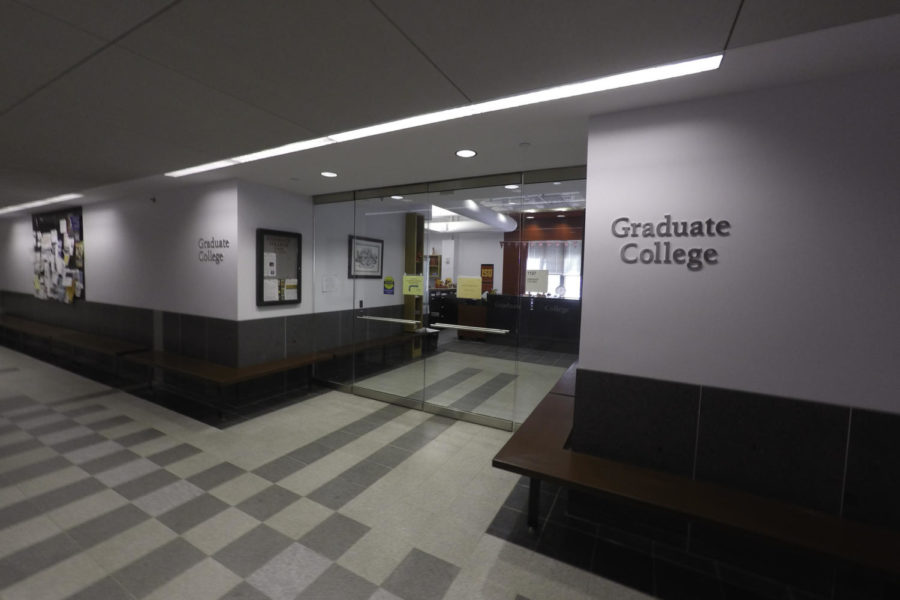GPSS to use excess funds on new books for students
Jonathan North/Iowa State Daily
The Graduate College offices in Pearson Hall will be renovated during the summer. Part of the space will be provided to the new Academic Communications Program. The center contains the graduate peer mentor program, which has trained consultants since 2014.
April 28, 2015
With new funds from the Graduate and Professional Student Senate, the graduate college will purchase books for graduate student use in the fall.
GPSS decided to allocate its excess funds to provide 45 books to the Academic Communications Program at its last meeting of the semester.
The books will be an addition to the scholarly communication center, which provides support and tutoring to graduate students with their research writing.
The scholarly communication center is part of the academic success program, and was started to further support students and their research.
“There was almost no writing support for graduate students,” said Elena Cotos, director of the Academic Communications Program. “We proposed that we do something about it, and that’s how we came up with the whole idea of creating a new center for graduate students.”
This center contains the graduate peer mentor program, which has trained both disciplinary and general English writing consultants since August 2014.
Chris Nelson, the graduate peer mentor program coordinator, said the focus of the mentor program was to help graduate students with their research writing.
The 45 books that will be added to the center will act as a supplement to the scholarly communication center, with the goal to further assist graduate students in their writing.
Though Chris Nelson and Anna Prisacari, senator on GPSS, have been promoting the academic communication program on campus all semester, interaction was finally established with the allocation of funds to the program.
Prisacari felt the need to bridge the gap between GPSS and the graduate college and requested support from the senate to further improve the Academic Communications Program initiative.
“That will go toward purchasing books for building the library that graduate and professional students can use,” Prisacari said about the funds.
It will take $1,924.97 to fund a list of 45 books that Prisacari assembled based on student need.
“The writing center is offering a systematic scholarly support system for students, and we’re refining the program to reflect that,” Nelson said.
Though it does not currently have a base location, the academic communications program and all the programs underneath it, including the scholarly communication center, will be based out of the graduate college office in Pearson Hall in the fall once the office has been remodeled.
“Part of the space will be given to the academic communication program,”Cotos said. “We’re getting that space because we’re growing.”
With the growth the graduate college is experiencing, the ACP and all of its initiatives will have a home base to seek writing help or books for research use.
In addition to the 45 books that will be purchased with GPSS funds, graduate students are encouraged to donate any of their books to the center. Any graduating students can contact the ACP about donations.
The list of books that will be bought by the center and more information about the Academic Communications Program itself can both be found on the GPSS website.







